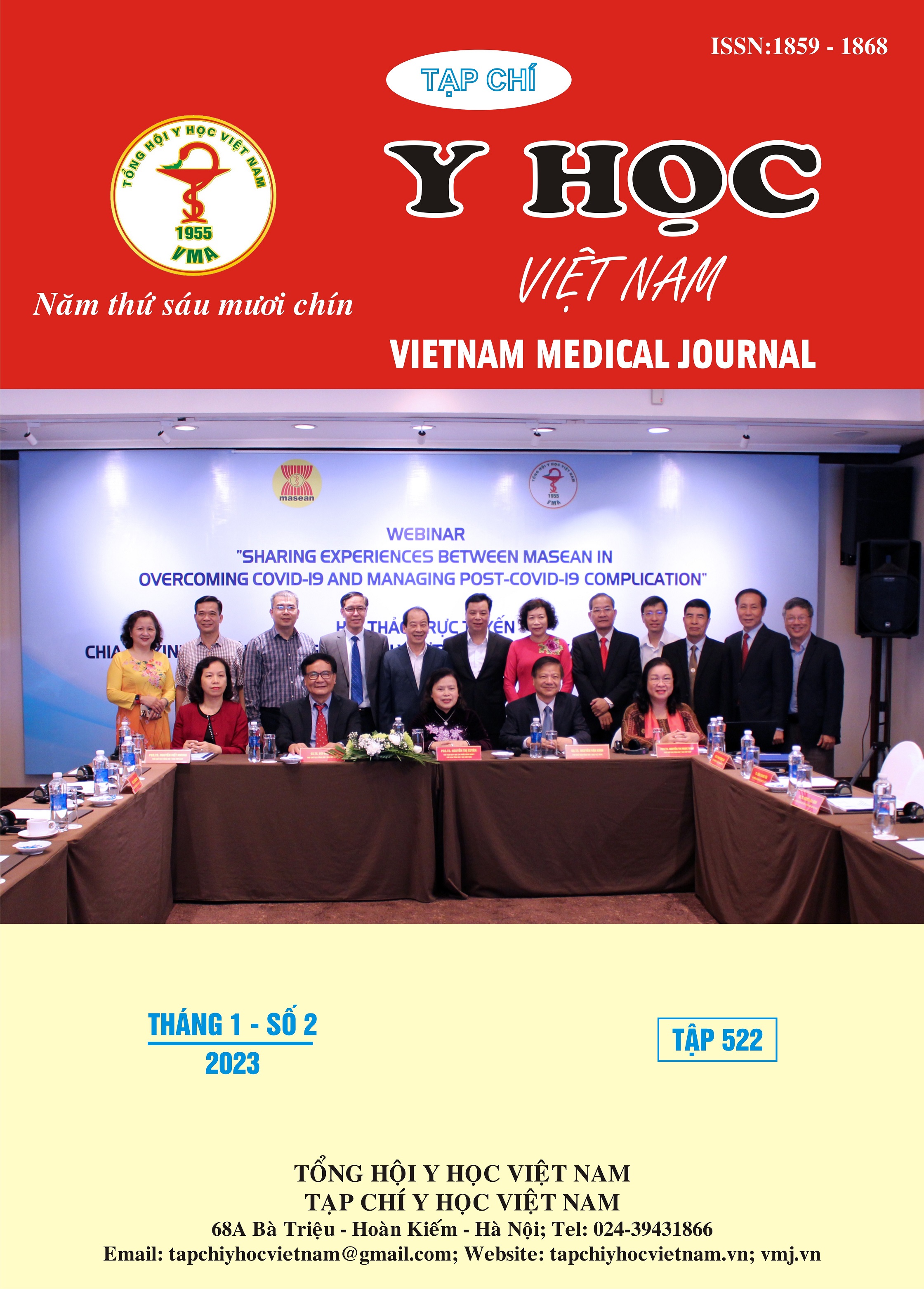EVALUATION OF SHOULDER FUNCTION BEFORE AND AFTER PACEMARKER IMPLANTATION AT THE VIETNAM CARDIOVASCULAR INSTITUTE - BACH MAI HOSPITAL
Main Article Content
Abstract
Introduction: shoulder pain and reduced shoulder mobility and function are common complications after pacemaker implantation in the first years, yet very little has been published aboute this morbility. We designed a study to assess shoulder function before and after implantation of a permanent pacemaker at the Viet Nam Cardiovascular Institute - Bach Mai Hospital. Methods: A descriptive cross-sectional study on 51 patients with pacemaker implantation at the VietNam cardiovascular Institute - Bach Mai Hospital. Study period from September 2021 to October 2022. Evaluation of shoulder function before and after pacemaker implantation includes: VAS pain scale, QuickDASH, and shoulder range of motion including shoulder abduction and flexion angles. Results: 51 patients participating in the study had an average age of 62.58 ± 11.34 years old. After 5 weeks of pacemaker implantation: VAS pain score 3.16 ± 2.69 increased compared to before implantation 0.20 ± 0.14 with P = 0.000, Quick DASH score 32.39 ± 25.48 increased compared to before implantation pacemaker 0.67 ± 1.76 with P = 0.000 . The angle of range of motion of the shoulder was significantly reduced after 5 weeks of pacemaker implantation with post-implantation flexion angle of 136.51 ± 26,890 compared with pre-implantation 161.00 ± 4,280 with P = 0.000, post-implantation abduction angle 134.59 ± 28,020 compared to before implantation 160.59 ± 4,660 with P = 0.000. Conclusion: After 5 weeks of pacemaker implantation, the incidence of shoulder pain increased, the QuickDASH function scores increased, and the angle of shoulder range of motion including flexion angle and abduction angle decreased significantly.
Article Details
Keywords
Pacemaker, shoulder mobility function, QuickDASH score
References
2. Nguyễn Sỹ Huyên và cộng sự. Máy tạo nhịp cơ bản và thực hành. Tạp chí tim mạch học Việt Nam. 1994.
3. Bailey SM, Wilkoff BL. Complications of pacemakers and defibrillators in the elderly. The American journal of geriatric cardiology. 2006;15(2):102-107.
4. Nguyễn Thị Hiền. Tìm hiểu một số biến chứng sớm của thủ thuật cấy máy tạo nhịp vĩnh viễn và những yếu tố có liên quan đến các biến chứng đó. Luận văn thạc sĩ y học; Đại học Y Hà Nội; 2020
5. Daniels JD, Sun S, Zafereo J, et al. Preventing shoulder pain after cardiac rhythm management device implantation: a randomized, controlled study. Pacing Clin Electrophysiol. 2011;34(6):672-678.
6. Wongcharoen W, Petvipusit W, Prasertwitayakij N, et al. Effect of early pendulum exercise on shoulder function after cardiac rhythm management device implantation. J Interv Card Electrophysiol. 2019;55(3):343-347.
7. Findikoglu G, Yildiz BS, Sanlialp M, et al. Limitation of motion and shoulder disabilities in patients with cardiac implantable electronic devices. Int J Rehabil Res. 2015;38(4):287-293.


